- Ben-Hur (1959)
- The Ten Commandments (1956)
- On the Waterfront (1954)
- 12 Angry Men (1957)
- From Here to Eternity (1953)
- Sunset Boulevard (1950)
- A Streetcar Named Desire (1951)
- Invasion of the Body Snatchers (1956)
- Vertigo (1958)
- The Bridge on the River Kwai (1957)
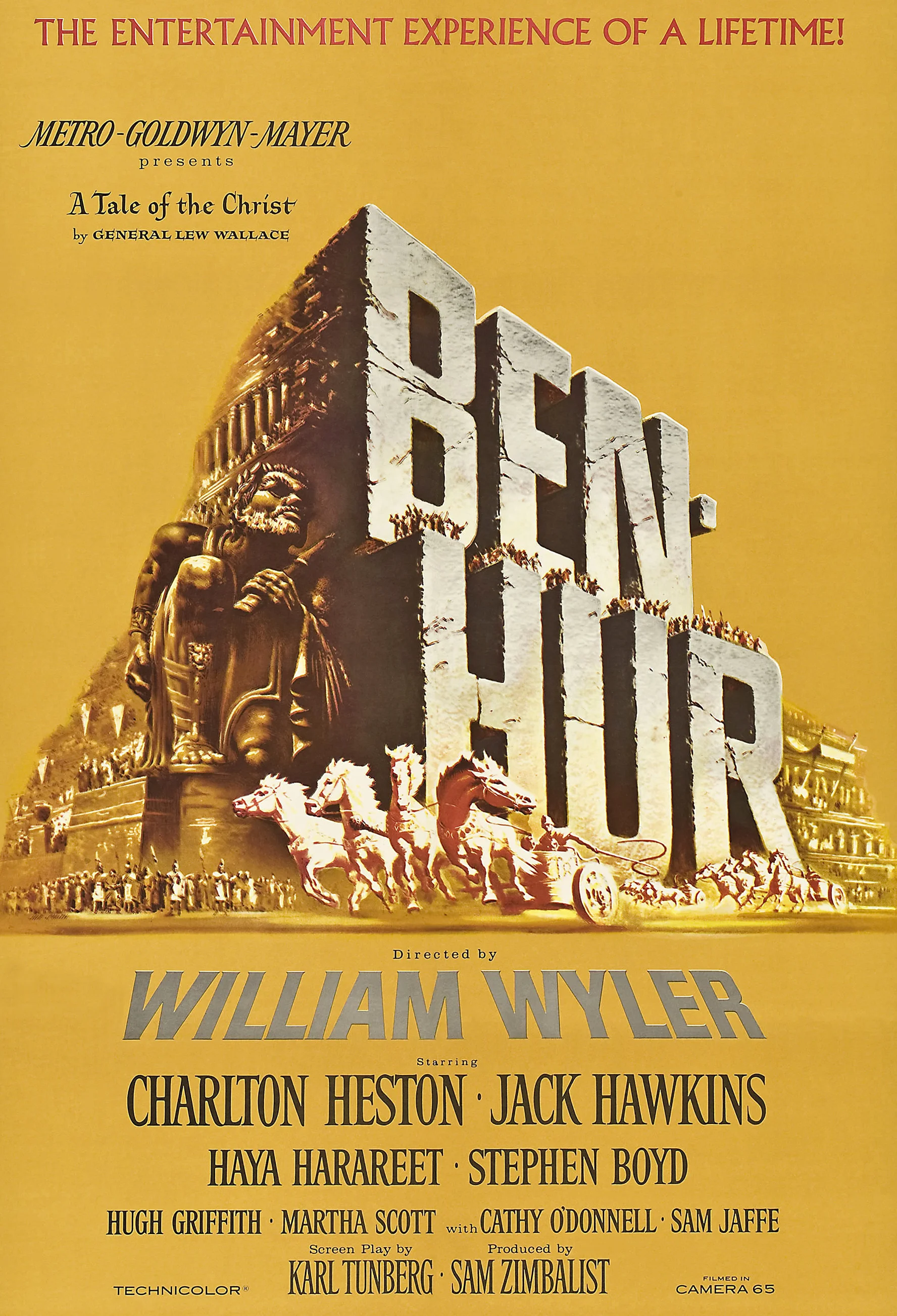 The epic of all epics, it's a big-budget picture amassing over 15,000 extras. Rome has never been so
glorious-looking since the fall of the empire. The greatest and the most breathtaking climax comes during the
chariot race. That scene is the reason alone the epic remains an insurmountable work of cinema. Although it's
the highlight of Ben-Hur, the movie is much more than that which includes the rise of Jesus Christ.
The epic of all epics, it's a big-budget picture amassing over 15,000 extras. Rome has never been so
glorious-looking since the fall of the empire. The greatest and the most breathtaking climax comes during the
chariot race. That scene is the reason alone the epic remains an insurmountable work of cinema. Although it's
the highlight of Ben-Hur, the movie is much more than that which includes the rise of Jesus Christ.
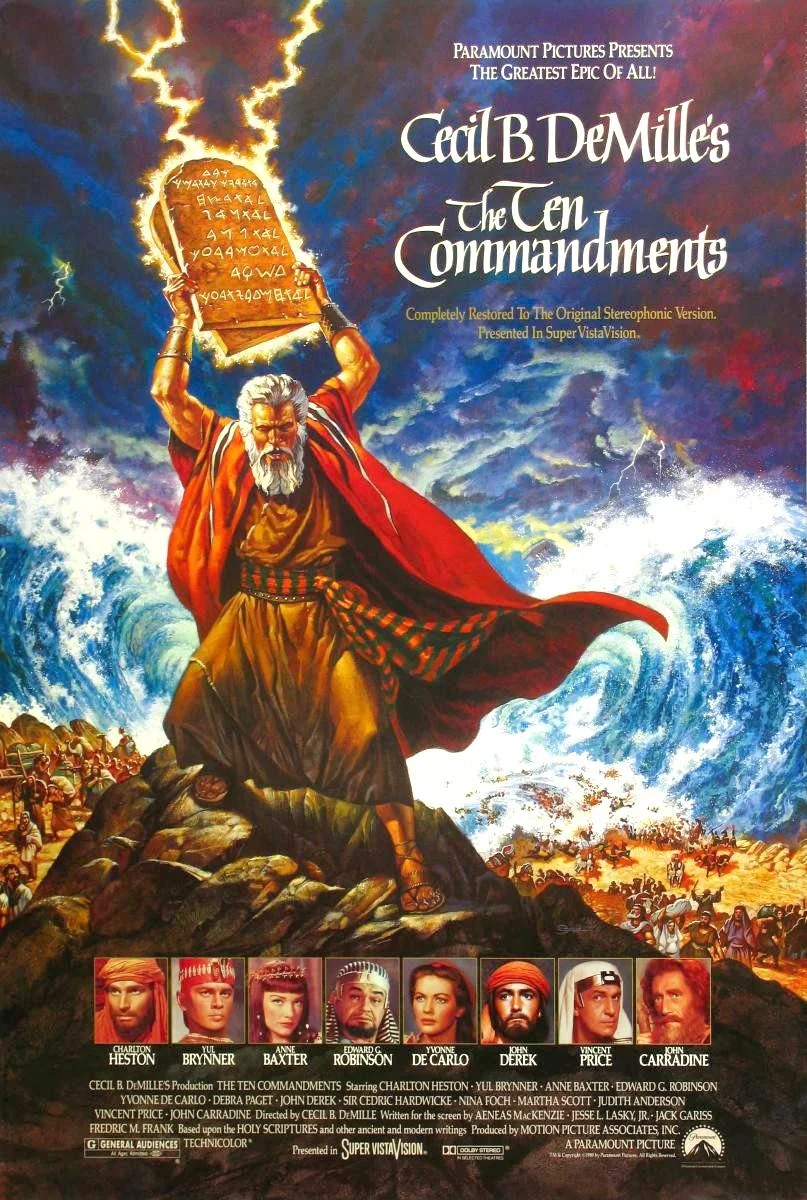 It's one of the finest movies made, a wondrous spectacle with outstanding hallmarks of what makes an epic. The
parting of the Red Sea by Moses is a sight to behold, the clincher for a lone Academy Award win in Special
Effects category, and it's still unbelievable for 1956. Charlton Heston will always be the King of Epics:
The Ten Commandments, Ben-Hur, and El Cid. Not to miss is the strong performance by Yul
Brynner.
It's one of the finest movies made, a wondrous spectacle with outstanding hallmarks of what makes an epic. The
parting of the Red Sea by Moses is a sight to behold, the clincher for a lone Academy Award win in Special
Effects category, and it's still unbelievable for 1956. Charlton Heston will always be the King of Epics:
The Ten Commandments, Ben-Hur, and El Cid. Not to miss is the strong performance by Yul
Brynner.
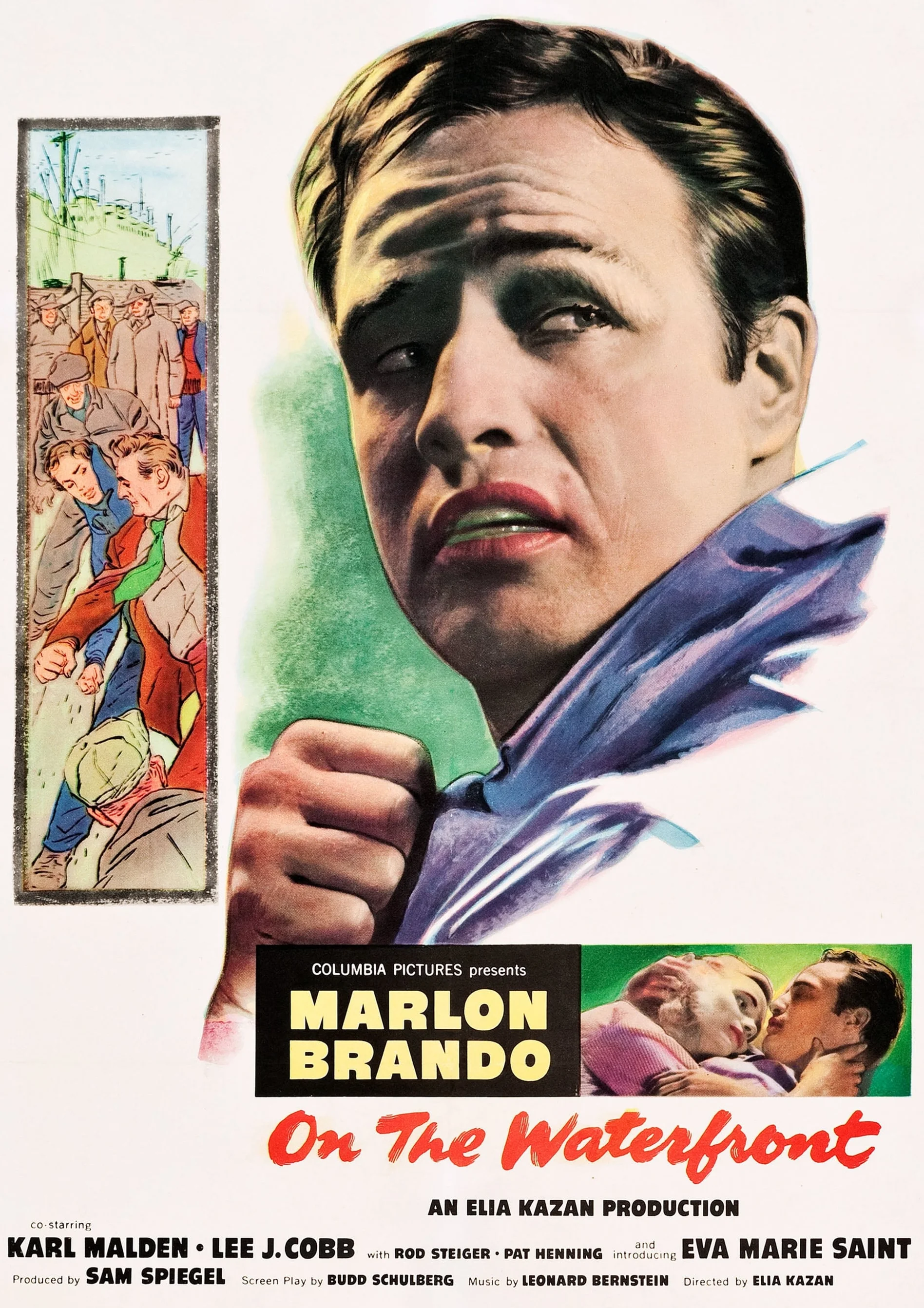 On the Waterfront is one of the most important, influential films made. The best and the greatest ever,
Marlon Brando is spectacular and is in a class of his own. Because of what he did, the landscape of acting
had been forever changed. Whenever I think of timeless movies with great performances, great scenes, and great
lines, On the Waterfront is among them.
On the Waterfront is one of the most important, influential films made. The best and the greatest ever,
Marlon Brando is spectacular and is in a class of his own. Because of what he did, the landscape of acting
had been forever changed. Whenever I think of timeless movies with great performances, great scenes, and great
lines, On the Waterfront is among them.
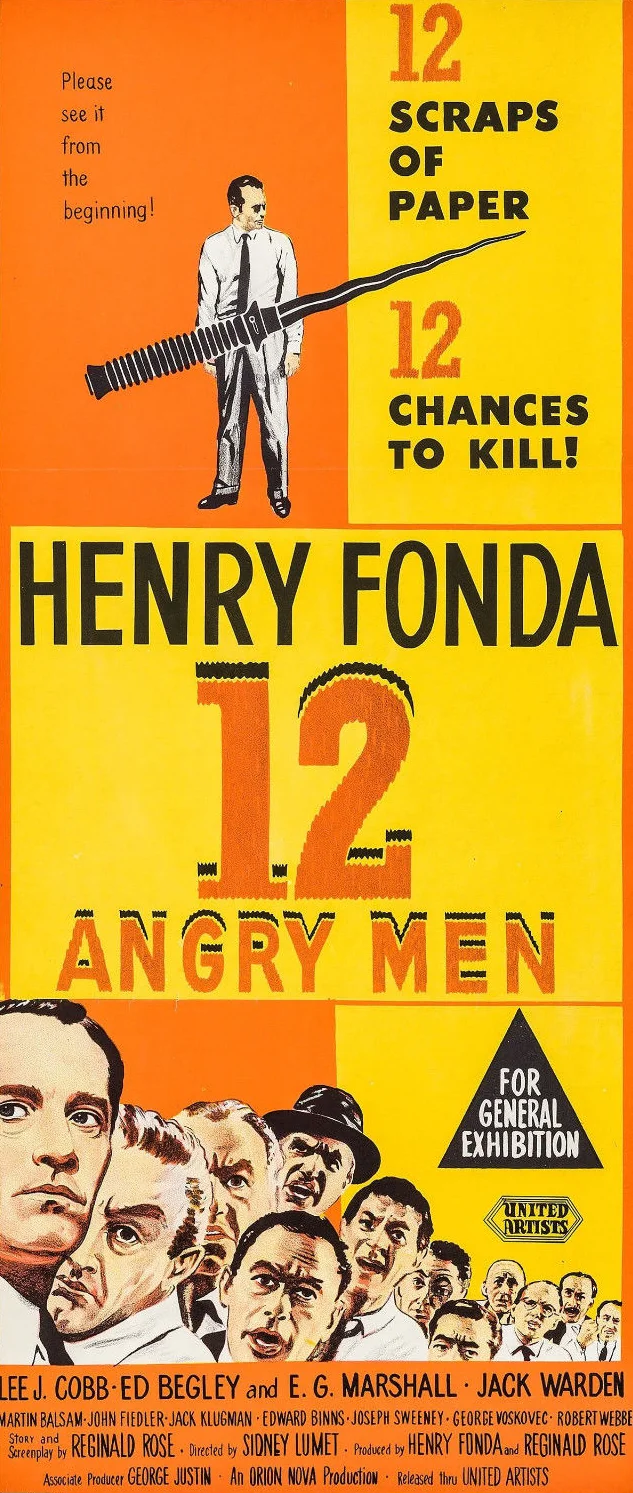 12 Angry Men is a brilliant film that's dependent on the script and performances. The best part is the
human aspect. Strangers come together and lay bare their flawed logical reasoning. The ending is powerful because
after what the jurors had accomplished as a group, they go their separate ways and never see each other again
for the rest of their lives. In fact, 12 Angry Men should be a required viewing for all Americans
before they're ready to be jurors.
12 Angry Men is a brilliant film that's dependent on the script and performances. The best part is the
human aspect. Strangers come together and lay bare their flawed logical reasoning. The ending is powerful because
after what the jurors had accomplished as a group, they go their separate ways and never see each other again
for the rest of their lives. In fact, 12 Angry Men should be a required viewing for all Americans
before they're ready to be jurors.
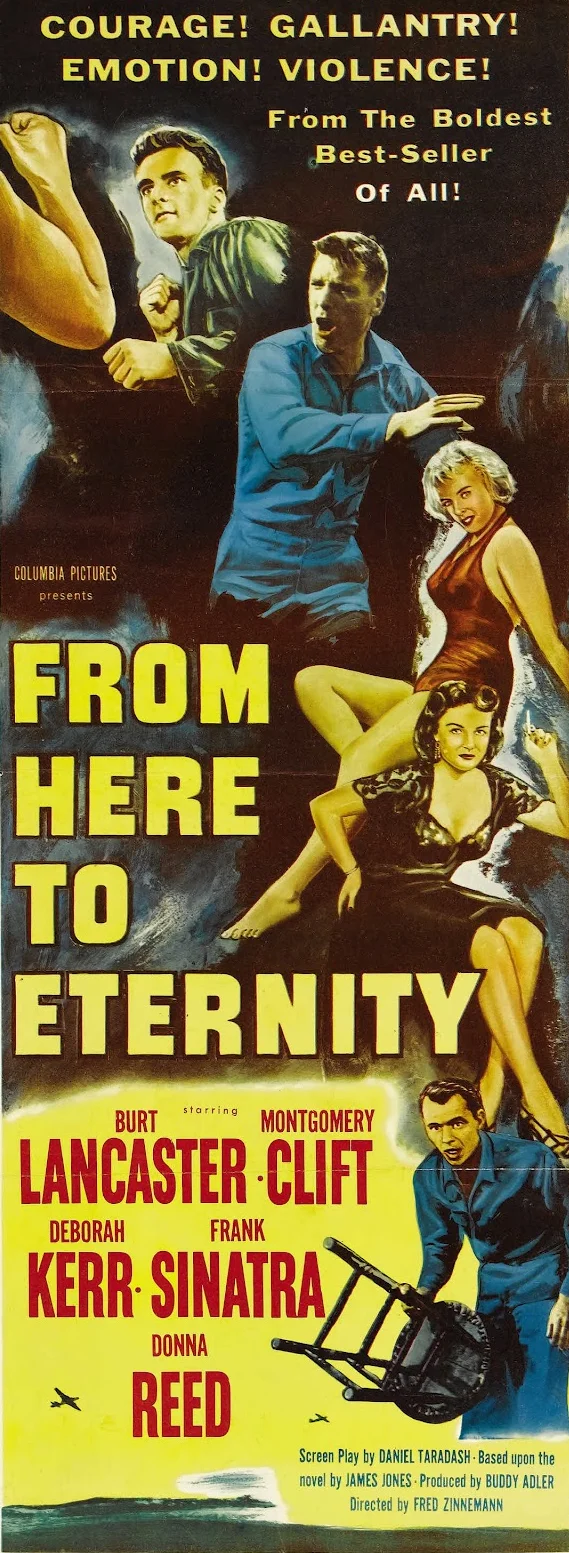 One of the most famous movie scenes of all time is when Burt Lancaster and Deborah Kerr embraced themselves on
the beach while being engulfed by the water. It's simply breathtaking. If that's all anybody can remember about
From Here to Eternity, then so be it. The performances, especially by Montgomery Clift, Burt Lancaster,
and Frank Sinatra, are unforgettable.
One of the most famous movie scenes of all time is when Burt Lancaster and Deborah Kerr embraced themselves on
the beach while being engulfed by the water. It's simply breathtaking. If that's all anybody can remember about
From Here to Eternity, then so be it. The performances, especially by Montgomery Clift, Burt Lancaster,
and Frank Sinatra, are unforgettable.
 To refuse to acknowledge Sunset Boulevard as a masterpiece is to commit a crime in film appreciation.
William Holden is superb, dashing, and handsome, but it's Gloria Swanson who steals the limelight in every
scene. Timeless and beautiful, she has brilliant lines and even more brilliant scenes.
To refuse to acknowledge Sunset Boulevard as a masterpiece is to commit a crime in film appreciation.
William Holden is superb, dashing, and handsome, but it's Gloria Swanson who steals the limelight in every
scene. Timeless and beautiful, she has brilliant lines and even more brilliant scenes.
 Out is the Old Hollywood, in is the New Hollywood which happens all in one fell swoop through two hours of
A Streetcar Named Desire. Pitting Vivien Leigh's classical acting against Marlon Brando's realism, a
change of the guard has taken place. The battle of these two styles is unlike anything ever seen in cinema
history or since then, making everybody forget this film is supposed to be a theatrical play.
Out is the Old Hollywood, in is the New Hollywood which happens all in one fell swoop through two hours of
A Streetcar Named Desire. Pitting Vivien Leigh's classical acting against Marlon Brando's realism, a
change of the guard has taken place. The battle of these two styles is unlike anything ever seen in cinema
history or since then, making everybody forget this film is supposed to be a theatrical play.
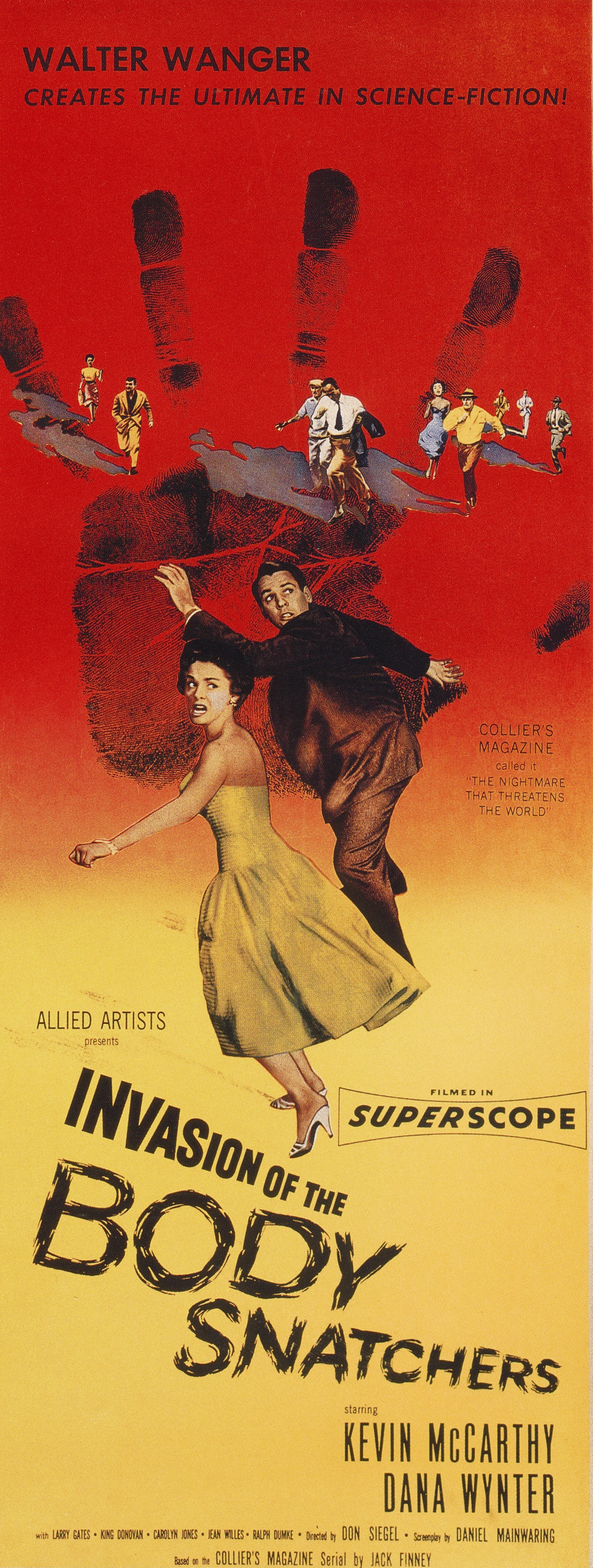 Anyone asking me this question, "Can you tell me the greatest horror movie ever made?", my answer will always be
Invasion of the Body Snatchers. It's bar none the best I've ever seen. There's no monster, blood, gore, or
violence whatsoever. It's just the beautiful use of subtlety to create frightening scenes.
Anyone asking me this question, "Can you tell me the greatest horror movie ever made?", my answer will always be
Invasion of the Body Snatchers. It's bar none the best I've ever seen. There's no monster, blood, gore, or
violence whatsoever. It's just the beautiful use of subtlety to create frightening scenes.
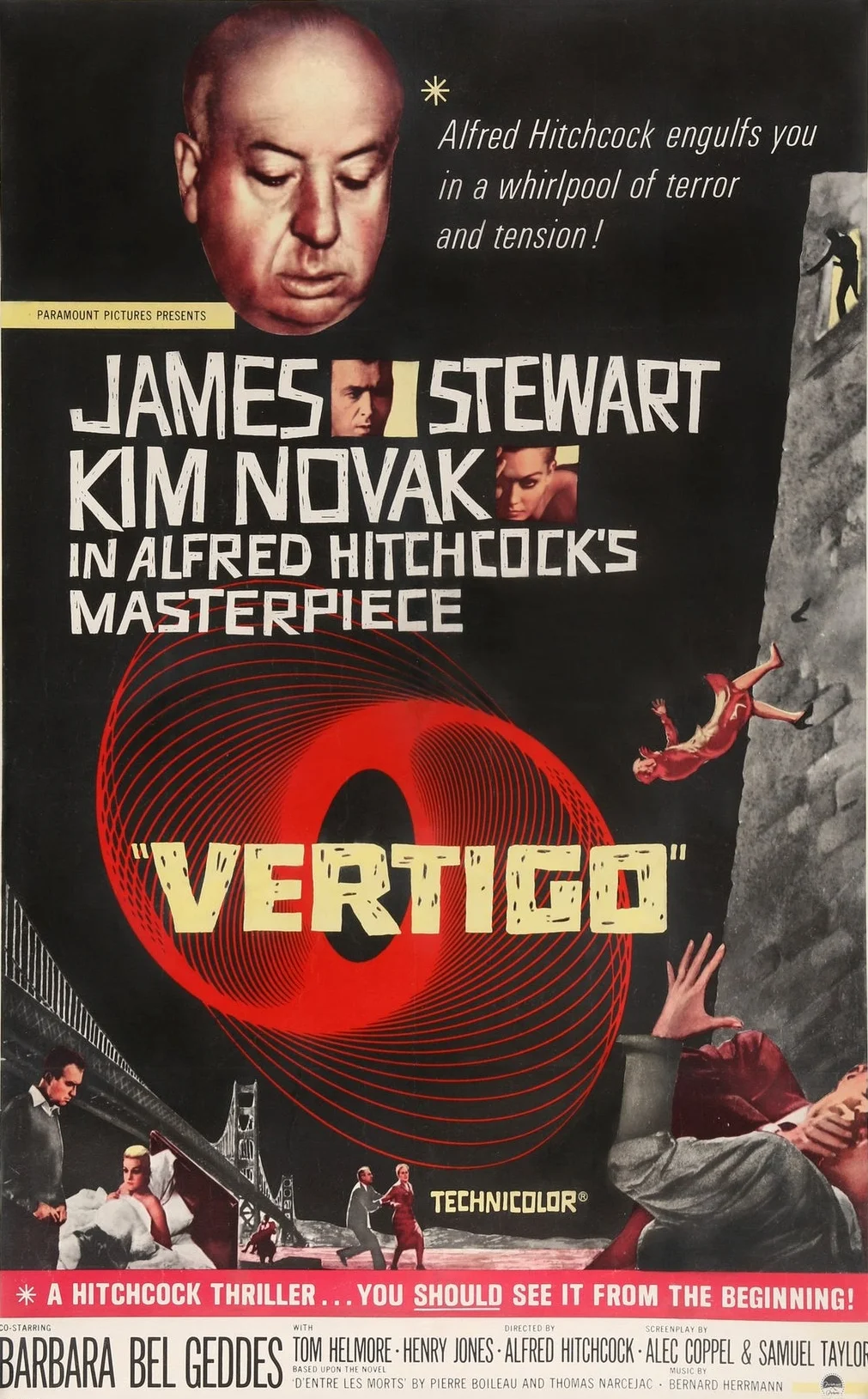 Vertigo is a technically, visually, psychologically, and brilliantly crafted neo-noir. All of
the elements including acting, screenplay, in/exterior sets, fashion, sound, score, and cinematography come
together so well, that it's a rare achievement. It exemplfies what a legendary director Alfred Hitchcock was
and why his movies are constantly revered to this day. There's something about them that remains timeless.
Vertigo is a technically, visually, psychologically, and brilliantly crafted neo-noir. All of
the elements including acting, screenplay, in/exterior sets, fashion, sound, score, and cinematography come
together so well, that it's a rare achievement. It exemplfies what a legendary director Alfred Hitchcock was
and why his movies are constantly revered to this day. There's something about them that remains timeless.
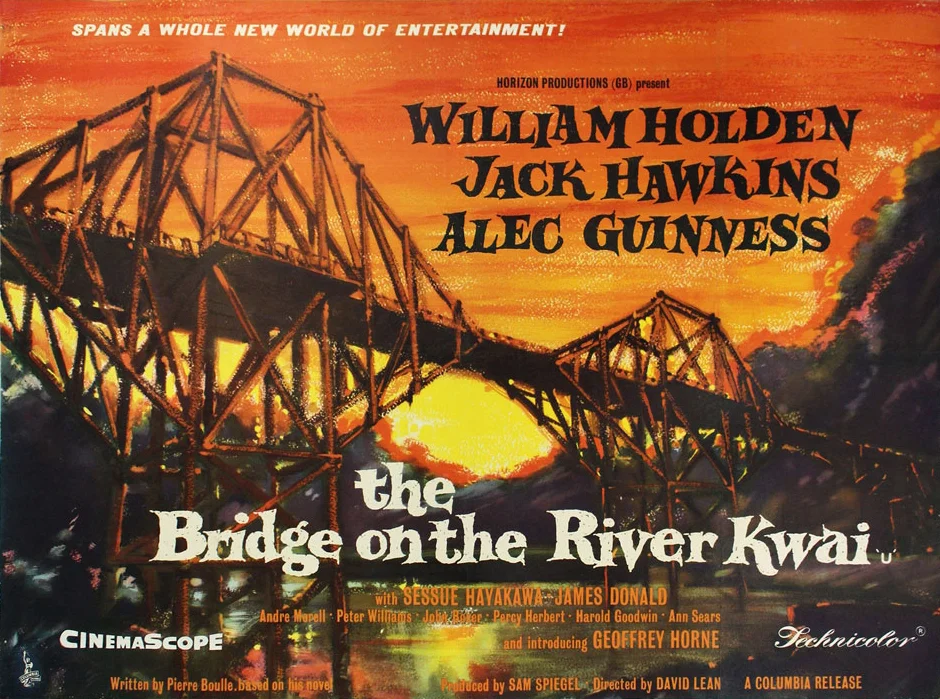 "Madness. Madness!" The exclamation at the end says it all about The Bridge on the River Kwai, a
thrilling WWII picture with William Holden and Alec Guinness at their finest. Against them is the massive bridge
that overshadows everything and therefore must be brought down.
"Madness. Madness!" The exclamation at the end says it all about The Bridge on the River Kwai, a
thrilling WWII picture with William Holden and Alec Guinness at their finest. Against them is the massive bridge
that overshadows everything and therefore must be brought down.